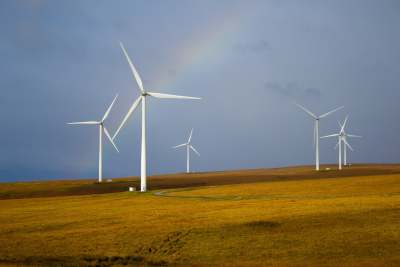Many of us hold investments – whether we realise it or not. Our pensions are a form of ethical investment, as are any investment funds or ISAs that we own.
The money we provide through our investments may be going to anything from coal-burning power stations to new wind farms. So making sure you choose an ethical option can be an important way to have a positive impact on the world.
What is ethical investing?
Ethical investing is a strategic approach to funding organisations, businesses, or projects, aiming for both financial returns and positive societal impact. It involves consciously choosing where your money goes, prioritising environmental, social, and ethical considerations. This can mean divesting from companies with harmful practices, such as those involved in arms or fossil fuels, or actively investing in ethical alternatives like renewable energy and community housing.
This might sound complicated, but luckily there are lots of investment platforms and providers that will do it for you. These can include banks offering ethical ISAs and investment accounts, ethical pension providers, and specialist ethical investment platforms. The robustness of their ethical practices varies greatly, however, so it’s worth spending some time looking for options you can trust.
Ethical investing involves an element of risk. A good rule of thumb is that you should never invest more than you can afford to lose. However, pensions, stocks and shares ISAs and cash ISAs are guaranteed by the UK Financial Services Compensations Scheme, which may be able to compensate you if your bank or provider goes bust.
Is ethical investing important?
Ethical investing is crucial for shaping a sustainable future. Your investment decisions directly influence whether companies and projects thrive. By choosing ethical options, your money can actively support sustainable initiatives such as wind and solar farms, rather than contributing to harmful ventures like coal mines. These long-term choices align your finances with your values, driving a broader ethical transition in the economy.








